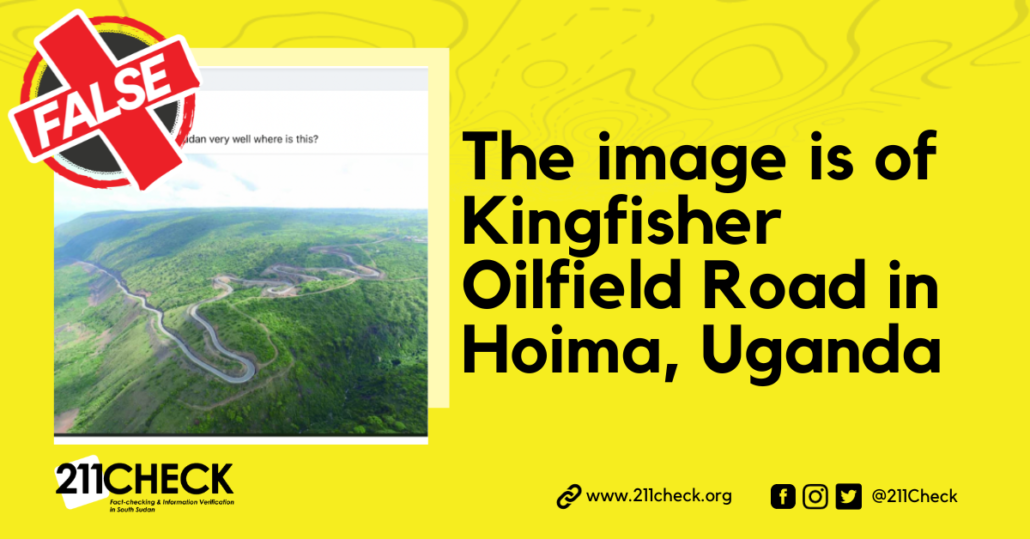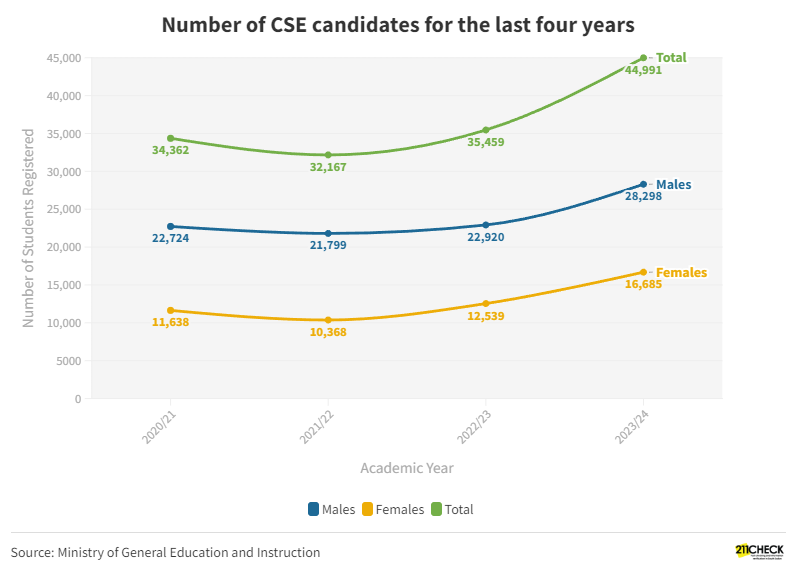Fact-check: Is this a long, winding road in South Sudan?
No, the image is of Kingfisher Oilfield Road in Hoima, Uganda.
Writer: Jibi Moses
A post with a picture showing a long, winding road supposedly taken somewhere in South Sudan is false.
Juba Eye shared the picture on 9 September 2023 and captioned it: “Since you claim to know South Sudan well, where is this?”
The post generated 819 reactions, 378 comments, and five shares within five days. However, a few remarks under the post differed from the post’s author, suggesting locations within South Sudan and Uganda.
These differences prompted 211 Check to investigate to establish the image’s correct location.
A screenshot of the post by Juba Eye.
Claim Verification:
A Google Reverse Image Search shows the picture is of Kingfisher Oilfield Road in Hoima, in the mid-western part of Uganda.
On October 25, 2021, the image was posted by the China National Offshore Oil Corporation, CNOOC Uganda Limited, on their X (formerly Twitter) account. It accompanied a post that reads: “Aerial View of the Kingfisher Oil Field Road.”
The same picture has also been used in other instances, clearly describing it as Kingfisher Oilfield Road in Hoima, Uganda, as seen here, here, and here, where the road is said to have been commissioned by CNOOC Uganda and was completed in 2013.
According to the Petroleum Authority of Uganda, the Kingfisher Oil Field is located in the Kingfisher Development Area, which is named after the kingfisher bird, which is common
in the area.
The road seemingly also goes by ‘Escarpment Road’ as in this news report by Ugandan outlet New Vision, and ‘Kingfisher Access Road’ as in this article by The Observer, another Ugandan outlet.
The winding road can also be seen from satellite images of the area.
Conclusion:
211 Check finds a Facebook post with a picture of a long, winding road supposedly taken somewhere in South Sudan false. The image is of Kingfisher Oilfield Road in Hoima, Uganda.
To ensure accuracy and transparency, we at 211 Check welcome corrections from our readers. If you spot an error in this article, please request a correction using this form. Our team will review your request and make the necessary corrections immediately, if any.
Fighting misinformation and disinformation in the media is crucial to avoiding fake news. Don’t share content you’re uncertain about. False information can harm and mislead people, risking their lives—Fact-check before sharing. For more details, visit https://211check.org/ or message us on WhatsApp at +211 917 298 255. #FactsMatter.



